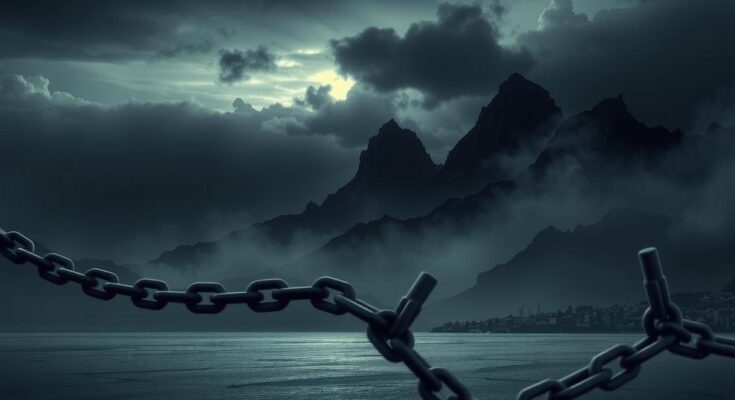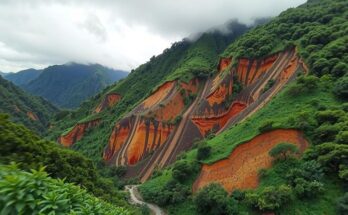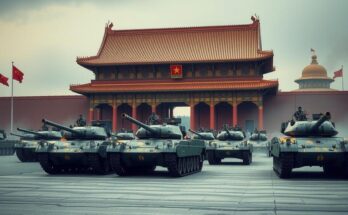A severe escalation of conflict has emerged in the DRC, with Rwandan-supported M23 rebels capturing Goma amidst international inaction. This rebellion reflects a complex history of Rwandan intervention driven by ethnic and resource interests. Without decisive action from Western nations, the situation may spiral, threatening regional stability and inviting external interference.
A significant escalation in conflict is occurring in the Democratic Republic of the Congo (DRC) as rebels, supported by Rwandan forces, have captured Goma, the largest city in eastern DRC. This recent offensive has escalated tensions beyond African borders and highlights the inaction of Western governments, whom many Congolese citizens blame for exacerbating the situation. The M23 rebellion, active since 2021, has resulted in devastating impacts on civilians, prompting calls for Rwanda to cease its military involvement.
The M23 rebellion has historical roots tied to Rwanda’s President Paul Kagame, who has provided military backing to various Congolese insurgencies for nearly three decades. His rationale for intervention revolves around protecting the Tutsi minority, which has faced violence and persecution in eastern Congo. However, the geopolitical dynamics also involve the extraction of valuable mineral resources by Rwanda-backed groups, complicating the narrative of purely humanitarian intervention.
Western officials, having previously overlooked evidence of Rwandan backing for Congolese rebellions, are now facing mounting scrutiny as the conflict escalates. Rwanda’s impressive post-genocide recovery story has long captivated Western governments, shielding it from accountability despite compelling accusations of its involvement in regional conflicts. Only after substantial evidence surfaced in 2012 did Western nations suspend some aid—though Rwanda remains significantly dependent on Western funding.
Upon taking office in 2019, DRC President Felix Tshisekedi attempted to collaborate with Rwandan forces against Hutu rebels linked to the 1994 genocide. However, while this endeavor began, the M23 rebellion re-emerged, pushing for greater political power and resource access. As of mid-2021, Western ties with Rwanda deepened, complicating the international response to the ongoing violence as Rwanda engaged in military actions beyond its borders, such as in Mozambique.
Faced with an untenable situation, the government of DRC has turned to a myriad of military partners while facing internal military challenges. Concerns arise regarding the influence of foreign mercenaries and the potential for increased Russian engagement in the DRC. Furthermore, analysts caution that without decisive international intervention, the conflict could spill over, destabilizing the region further and inviting hostile external influence akin to scenarios seen in the Sahel region.
It is imperative that Western officials leverage their diplomatic influence to press for the withdrawal of M23 forces and facilitate negotiations that address the underlying issues fueling these recurrent conflicts. Failure to act could result in the emergence of additional regional players or insurgents, further unraveling the already fragile international order.
This article addresses the ongoing conflict in the Democratic Republic of the Congo, highlighting the role of Rwandan support for the M23 rebels. The historical context includes Rwanda’s long-standing military involvement in DRC affairs, driven by both humanitarian claims and resource extraction interests. The consequences of this conflict extend not just within Africa but also raise concerns about international stability and the potential for increased foreign influence in the region.
In summary, the conflict in the DRC, exacerbated by Rwandan support for M23 rebels, presents a critical challenge to regional stability and international order. The response of Western nations, historically lenient towards Rwanda, will be pivotal in determining the outcome of the conflict. Urgent diplomatic efforts are necessary to mitigate the risks of further escalation and to restore peace in the region.
Original Source: www.theguardian.com




